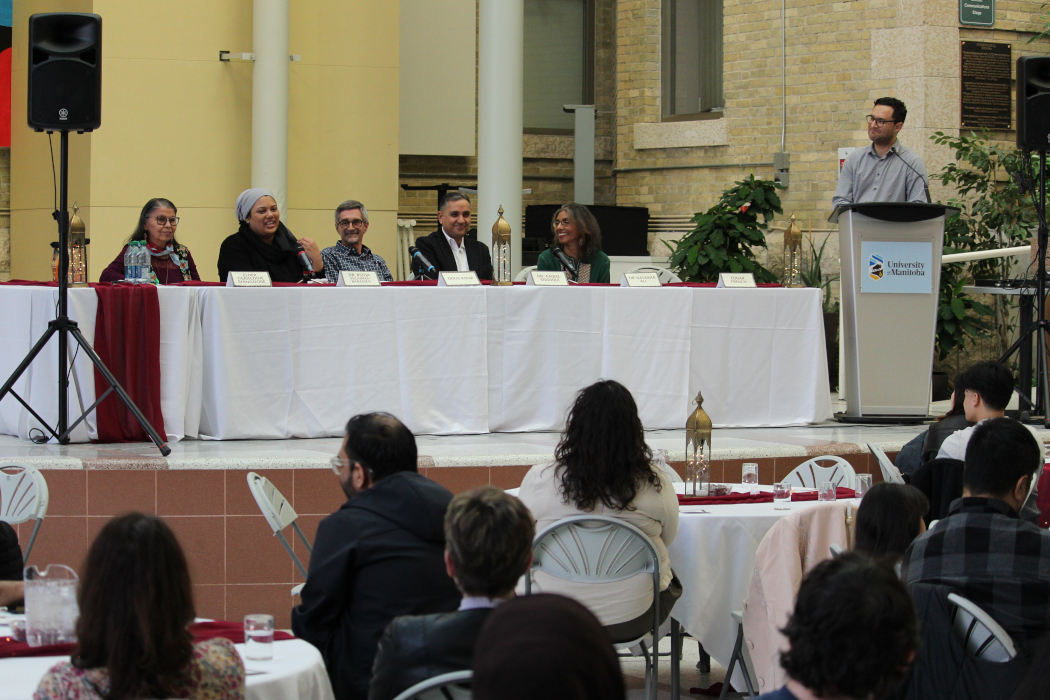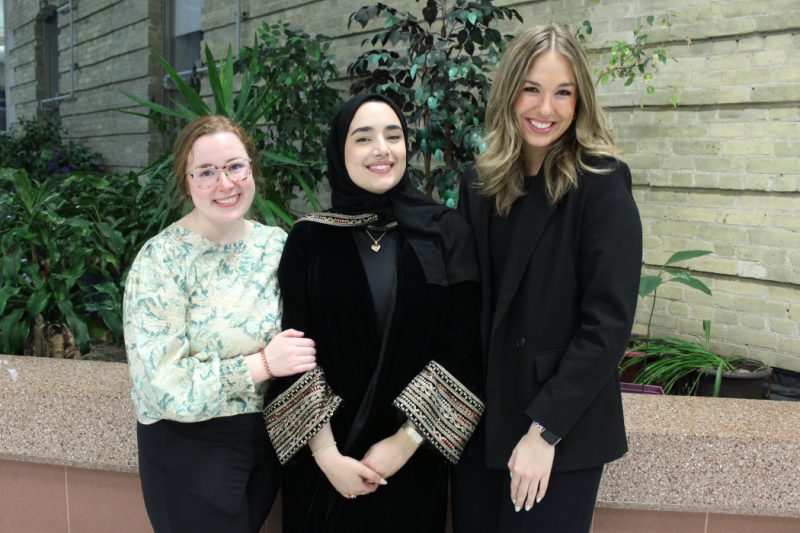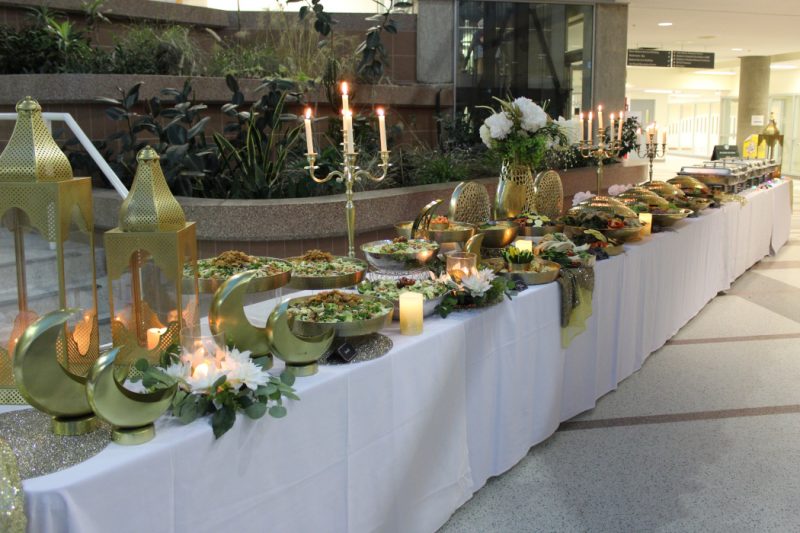
[From left to right] Elder Geraldine Shingoose, Dr. Rizqa Sulaiman-Baradien, Doug Koop, Dr. Faisal Siddiqui and Dr. Natasha Ali take part in the panel discussion, while Edgar French is the moderator.
Rady Faculty community gathers for Ramadan event
Brodie Centre atrium is normally the place Ashraf Kadar Shahib grabs a coffee and chats with friends about their research projects.
But on the evening of April 5, the master’s student in biochemistry and medical genetics at the Max Rady College of Medicine broke his fast surrounded by about 90 people gathered in the atrium for iftar, the meal Muslims eat at sundown to break their daily fast during the holy month of Ramadan.
“It was nice,” he said. “Almost every day I’ve been breaking fast all by myself or with my very close friends – two or three of them, that was the maximum.”

[From left to right] Master’s of community health sciences students Mackenzie Alexiuk, Heba Elgubtan and Haley Farion organized the event.
Heba Elgubtan, a master’s student in community health sciences at the Max Rady College of Medicine and one of the event organizers, said the goal of the Interdisciplinary Health Ramadan Iftar was to bring together faculty, staff and students – regardless of faith – from across the Rady Faculty of Health Sciences to celebrate as a group.
“Ramadan is all about bringing together community and reaching out to your neighbour,” Elgubtan said.
The event was hosted by the Community Health Sciences Student Association, in collaboration with student groups across the Rady Faculty, and included a welcome address by Dr. Marcia Anderson, vice-dean Indigenous health, social justice and anti-racism for the Rady Faculty, a panel discussion, prayer and an iftar meal.
“The topic of the panel discussion was the intersectionality of faith and health care,” Elgubtan said. “Health care is not just medicine. It encompasses multi-disciplinary practice, so we wanted to make sure that there was a very broad range of people on the panel who represented different perspectives of health and health care.”
The panel included two faculty members from the Max Rady College of Medicine, a spiritual health practitioner from Health Sciences Centre, a First Nations Elder, and a registered psychologist who is a Muslim spiritual care provider at the UM Spiritual Care and Multi-Faith Centre. They discussed topics ranging from how faith influences the way they approach health and health care to what ethical considerations arise when religious beliefs conflict with medical interventions or treatments.

Alsham Food Market catered the iftar meal that included rice, falafel, chicken and dessert.
The fast was broken with dates and the meal was catered by Alsham Food Market, which included rice, falafel, chicken and dessert.
“Rady Faculty’s iftar event was very welcoming for the Muslim community,” said Md Mahamudul Haque, a PhD student in oral biology at the Dr. Gerald Niznick College of Dentistry. “The decor was beautiful, with traditional pieces, flowers and candles. Added to that, the food was excellent. Overall, the whole event was nicely organized – bustling with students, faculty and staff members.”
The idea for the event came to Elgubtan when she noticed there are a lot of Muslims working and studying on the Bannatyne campus and she thought it would be nice to bring the Rady Faculty community together.
The event far exceeded the expectations of Elgubtan and her co-organizers, master’s of community health sciences students Mackenzie Alexiuk and Haley Farion.
“When I had the idea in my head, I thought that only 10 to 15 people were going to show up and those were people I was going to beg to come,” Elgubtan said. “But instead, up to an hour before the event people were emailing me, begging me for tickets so they could come. I’m so grateful that people saw the potential in this event and came to support it.”
Elgubtan said the group plans to hold the event again next year.






